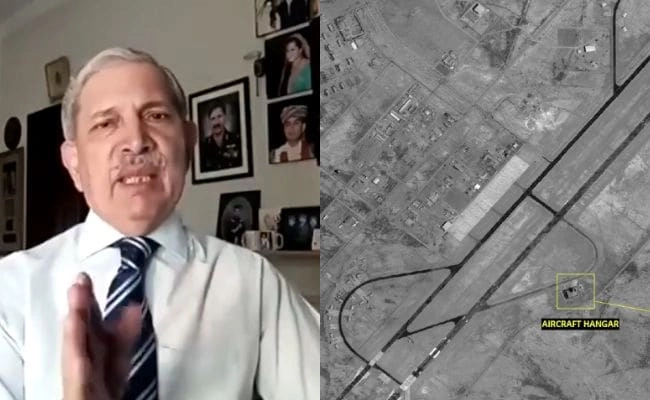In a recent revelation, a former Air Marshal of the Pakistan Air Force has acknowledged the loss of an Airborne Warning and Control System (AWACS) aircraft during Operation Sindoor at the Bholari Base. This admission has significant implications not only for the military’s operational history but also for the strategic narrative surrounding the capabilities and vulnerabilities of the Pakistan Air Force. The incident reportedly took place during a period of heightened tensions, and the loss of such a critical asset raises questions about the effectiveness of defensive measures and the overall operational readiness of the air force at that time.
The AWACS aircraft, which plays a crucial role in surveillance and command and control during military operations, is integral to maintaining aerial superiority. Losing this type of aircraft can severely impact situational awareness and decision-making capabilities in combat scenarios. The ex-Air Marshal’s candid acknowledgment serves as a stark reminder of the challenges faced by military forces in maintaining their assets and the potential consequences of operational missteps. It also sheds light on the complexities of modern warfare, where technology and strategy must align seamlessly to mitigate risks.
This admission may also stir discussions within military circles about accountability and the lessons learned from such incidents. The acknowledgment of failure can lead to a more profound analysis of past operations, potentially influencing future military strategies and training programs. Furthermore, the implications extend beyond just the operational aspects; they may influence public perception and the political landscape regarding military effectiveness and preparedness. As Pakistan navigates its geopolitical challenges, understanding past vulnerabilities will be crucial in shaping a robust defense strategy moving forward.
In conclusion, this revelation by the former Air Marshal not only underscores the importance of accountability within the military but also highlights the need for continuous improvement in operational readiness. As nations adapt to evolving threats, learning from past mistakes will be essential in ensuring that air forces remain effective and resilient in the face of adversity. The loss of an AWACS aircraft serves as a reminder of the high stakes involved in military operations and the importance of strategic foresight in maintaining national security.




